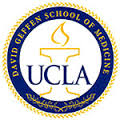Evaluation of the Brainsway Deep Transcranial Magnetic Stimulation (TMS) H-Coil in the Treatment of Major Depression Disorder
| Status: | Archived |
|---|---|
| Conditions: | Depression, Major Depression Disorder (MDD) |
| Therapuetic Areas: | Psychiatry / Psychology, Pulmonary / Respiratory Diseases |
| Healthy: | No |
| Age Range: | Any |
| Updated: | 7/1/2011 |
| Start Date: | September 2009 |
| End Date: | December 2011 |
A Prospective Multicenter Double Blind Randomized Controlled Trial to Explore the Tolerability, Safety and Efficacy of the H-Coil Deep Transcranial Magnetic Stimulation (TMS) in Subjects With Major Depression Disorder (MDD)
The purpose of the study is to evaluate the efficacy and safety of deep brain rTMS,
(Transcranial Magnetic Stimulation), a new experimental procedure using the H-Coil, in
subjects with Major Depressive Disorder that have been previously unsuccessfully treated
with antidepressant medications.
This study is a multicenter, randomized double blind, sham controlled study to evaluate the
safety and efficacy of H-coil deep transcranial magnetic stimulation (dTMS) as a treatment
for patients with major depressive disorder who have been previously unsuccessfully treated
with antidepressant medications. Studies of repetitive transcranial magnetic stimulation
(rTMS), typically using a figure-8 coil, have shown that stimulating superficial brain
regions can be beneficial in treating major depression. Differing from traditional figure-8
coil, the H-coil is designed to stimulate deep brain regions related to motivation, reward,
and pleasure. Preliminary studies have been conducted and seem to indicate that through
stimulating certain brain areas with the H-coil, dTMS may have an antidepressant effect.
The study population will consist of patients with major depressive disorder who have failed
adequate medication treatment or shown significant intolerance to medications. The study
duration is 18 weeks, with a 2 week period of weaning the patient off medication, followed
by 4 weeks of 5 daily treatments and 12 weeks of biweekly treatments. Mood and mental state
will be carefully monitored through standard psychological scales and rating during the drug
taper-down and throughout treatment.
We found this trial at
9
sites
Columbia Presbyterian Med Ctr On January 1, 1998, The New York Hospital publicly announced its...
Click here to add this to my saved trials
Johns Hopkins University The Johns Hopkins University opened in 1876, with the inauguration of its...
Click here to add this to my saved trials
5303 Harry Hines Boulevard
Dallas, Texas 75390
Dallas, Texas 75390
(214) 648-3111

UT Soutwestern Medical Center at Dallas UT Southwestern Medical Center is distinctive for its overall...
Click here to add this to my saved trials
McLean Hospital McLean Hospital is a comprehensive psychiatric hospital committed to providing easy access to...
Click here to add this to my saved trials
171 Ashley Avenue
Charleston, South Carolina 29425
Charleston, South Carolina 29425
843-792-1414

Medical University of South Carolina The Medical University of South Carolina (MUSC) has grown from...
Click here to add this to my saved trials
Click here to add this to my saved trials
Click here to add this to my saved trials
10833 Le Conte Ave
Los Angeles, California 90095
Los Angeles, California 90095
(310) 825-4321

David Geffen School of Medicine, UCLA In 2002 Mr. David Geffen announced a $200 million...
Click here to add this to my saved trials
Click here to add this to my saved trials


